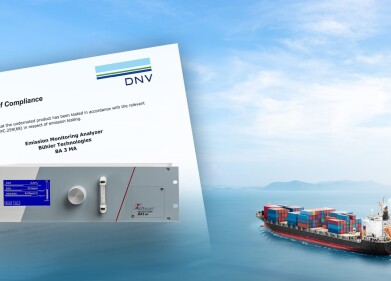Measurement and testing
What's the Difference Between Hydrogen Cars and EVs?
May 01 2022
With the UK set to ban the sale of new petrol and diesel cars by 2030, auto manufacturers and motorists are on the hunt for new ways to power vehicles. Hydrogen fuel cell electric vehicles (FCEVs) and electric vehicles (EVs) have stepped up as a sustainable alternative to petrol and diesel, with an increasing number of auto companies launching eco-friendly models.
So, what’s the difference between hydrogen cars and EVs? Read on to find out more:
EVs vs FCEVs
The main difference between EVs and FCEVs is how the cars generate the power needed to rotate the wheels. Electric cars are powered by batteries, usually lithium-ion. In comparison, FCEVs rely on a hydrogen fuel cell to generate electricity.
The eco footprint of EVs and FCEVs
While both EVs and FCEVs produce zero carbon emissions and don’t release any harmful by-products into the atmosphere, upstream processes must be factored in for vehicles to be considered truly eco-friendly. For example, electricity needed to recharge the lithium-ion batteries of EVs is often sourced from plants that burn fossil fuels to generate power. Similarly, most hydrogen is produced using steam methane reforming, an energy-intensive process that relies on non-renewable natural gas. In both cases, EVs and FCEVs aren’t 100% sustainable and still have a significant environmental footprint.
Generating clean, eco-friendly fuels
The good news is, with the right infrastructure both electricity and hydrogen can be produced sustainably. Around the world, an increasing number of industries and governments are channelling cash into the development of clean electricity and “green” hydrogen technologies.
In the UK, the government has pledged to spend almost US$500 million on green hydrogen. The investment is part of a wider plan to support the country’s Energy Security Strategy and boost low-carbon hydrogen production capacity to 2GW by 2025. By 2030, the government hopes to increase capacity to 10GW. The US$500 million investment will also help the UK meet its Net Zero Strategy targets, which are designed to drastically reduce emissions and decarbonise the British economy.
Combating climate change with EVs and FCEVs
The Climate Change Committee (CCC) was quick to praise the move and commend the government for taking such ambitious steps to tackle climate change and improve energy security.
“The Government has doubled down on its Net Zero Strategy today by accelerating plans to secure clean, green, UK-made energy,” says Mike Thompson, CCC Director of Analysis. “For perhaps the first time, the Government has made commitments that clearly go beyond CCC proposals in key low-carbon technologies: offshore wind, nuclear, hydrogen.”
Want to know more about other uses for hydrogen as a fuel? We go beyond EVs and FCEVs and explore applications like space exploration and steel manufacturing in ‘Everything You Need to Know About Hydrogen Fuel’.
Digital Edition
PIN 26.1 Feb/Mar 2025
March 2025
Analytical Instrumentation - Elemental Analysis for Quality and Process Control at Refineries, for Lubricants and Wear Metals in Engine Oils - Synthetic Lubricants: New Developments - Scaling...
View all digital editions
Events
Apr 22 2025 Hammamet, Tunisia
Apr 22 2025 Kintex, South Korea
Solar & Energy Storage Summit 2025
Apr 23 2025 Denver, CO, USA
Apr 27 2025 Portland, OR, USA
Apr 29 2025 Mumbai, India


.jpg)
















